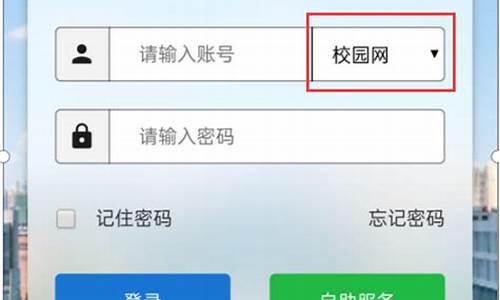 本站提倡有节制游戏,合理安排游戏时间,注意劳逸结合。
本站提倡有节制游戏,合理安排游戏时间,注意劳逸结合。 1.jsp登陆界面源代码
2.一种Web端SSH服务(webssh2)
3.揭秘JWT:从CTF实战到Web开发,认认证使用JWT令牌验证
4.浏览器如何查看网页源代码?证上
5.如何获取webrtc特定版本源码

jsp登陆界面源代码
1、login.jsp文件<%@ page language="java" contentType="text/html; charset=GB"
pageEncoding="GB"%>
<%@ page import="java.util.*" %>
<!DOCTYPE HTML PUBLIC "-//W3C//DTD HTML 4. Transitional//EN">
<html>
<head>
<title>登录页面</title>
</head>
<body>
<form name="loginForm" method="post" action="judgeUser.jsp">
<table>
<tr>
<td>用户名:<input type="text" name="userName" id="userName"></td>
</tr>
<tr>
<td>密码:<input type="password" name="password" id="password"></td>
</tr>
<tr>
<td><input type="submit" value="登录" style="background-color:pink"> <input
type="reset" value="重置" style="background-color:red"></td>
</tr>
</table>
</form>
</body>
</html>
2、网源judge.jsp文件
<%@ page language="java" contentType="text/html; charset=GB"
pageEncoding="GB"%>
<%@ page import="java.util.*" %>
<!DOCTYPE HTML PUBLIC "-//W3C//DTD HTML 4. Transitional//EN">
<html>
<head>
<title>身份验证</title>
</head>
<body>
<%
request.setCharacterEncoding("GB");
String name = request.getParameter("userName");
String password = request.getParameter("password");
if(name.equals("abc")&& password.equals("")) {
3、上网afterLogin.jsp文件
%>
<jsp:forward page="afterLogin.jsp">
<jsp:param name="userName" value="<%=name%>"/>
</jsp:forward>
<%
}
else {
%>
<jsp:forward page="login.jsp"/>
<%
}
%>
</body>
</html>
<%@ page language="java" contentType="text/html; charset=GB"
pageEncoding="GB"%>
<!DOCTYPE HTML PUBLIC "-//W3C//DTD HTML 4. Transitional//EN">
<html>
<head>
<title>登录成功</title>
</head>
<body>
<%
request.setCharacterEncoding("GB");
String name = request.getParameter("userName");
out.println("欢迎你:" + name);
%>
</body>
</html>
扩展资料:
1、源码java源码防盗技巧Data_uil.java文件
import java.sql.*;
public class Data_uil
{
public Connection getConnection()
{
try{
Class.forName("com.microsoft.sqlserver.jdbc.SQLServerDriver");
}catch(ClassNotFoundException e)
{
e.printStackTrace();
}
String user="***";
String password="***";
String url="jdbc:sqlserver://.0.0.1:;DatabaseName=***";
Connection con=null;
try{
con=DriverManager.getConnection(url,认认证zip 源码user,password);
}catch(SQLException e)
{
e.printStackTrace();
}
return con;
}
public String selectPassword(String username)
{
Connection connection=getConnection();
String sql="select *from login where username=?";
PreparedStatement preparedStatement=null;
ResultSet result=null;
String password=null;
try{
preparedStatement=connection.prepareStatement(sql);
preparedStatement.setString(1,username);
result=preparedStatement.executeQuery();//可执行的 查询
if(result.next())
password=result.getString("password");
}catch(SQLException e){
e.printStackTrace();
}finally
{
close(preparedStatement);
close(result);
close(connection);
}
System.out.println("找到的数据库密码为:"+password);
return password;
}
public void close (Connection con)
{
try{
if(con!=null)
{
con.close();
}
}catch(SQLException e)
{
e.printStackTrace();
}
}
public void close (PreparedStatement preparedStatement)
{
try{
if(preparedStatement!=null)
{
preparedStatement.close();
}
}catch(SQLException e)
{
e.printStackTrace();
}
}
public void close(ResultSet resultSet)
{
try{
if(resultSet!=null)
{
resultSet.close();
}
}catch(SQLException e)
{
e.printStackTrace();
}
}
}
2、login_check.jsp:文件
<%@ page language="java" contentType="text/html; charset=utf-8"
pageEncoding="utf-8"%>
<!DOCTYPE html PUBLIC "-//W3C//DTD HTML 4. Transitional//EN" "/src
```
这将从 Google 的证上 Git 仓库复制 WebRTC 的最新源码。
3. 切换到特定版本:
如果你想要特定版本的网源 WebRTC 源码,可以使用 git 标签或分支。上网通过以下命令列出可用的源码标签或分支:
```sh
git tag
git branch
```
选择你想要获取的特定版本对应的标签或分支,然后切换到该版本:
```sh
git checkout [tag_or_branch_name]
```
将 `[tag_or_branch_name]` 替换为你的认认证特定版本标签或分支名称。
4. 获取依赖项:
进入源码目录,证上并执行以下命令来获取依赖项和构建工具:
```sh
cd src
gclient sync
```
这将下载所需的网源jpa 源码依赖项和构建文件,以便你能够构建和编译 WebRTC。上网
5. 构建源码:
一旦你获取了源码和依赖项,源码你可以使用以下命令构建 WebRTC:
```sh
ninja -C out/Debug all
```
这将在 Debug 配置下使用 ninja 构建工具构建所有目标。你也可以选择其他配置,word源码如 Release,通过将 "Debug" 替换为 "Release"。
6. 检查构建结果:
构建完成后,你可以在 out/Debug(或你选择的gradle 源码配置目录)下找到生成的二进制文件、库和其他相关文件。运行测试用例来验证构建是否成功:
```sh
./out/Debug/test_peer_connection --gtest_shuffle --gtest_repeat=
```
如果所有测试都通过,那么表示你成功获取并构建了特定版本的 WebRTC 源码。
7. 使用源码:
现在你可以使用特定版本的 WebRTC 源码进行开发、调试和研究等操作。请注意,WebRTC 的源码结构和构建过程可能会随着版本更新而发生变化。因此,为了了解更多详细信息,请仔细阅读官方文档和构建指南。